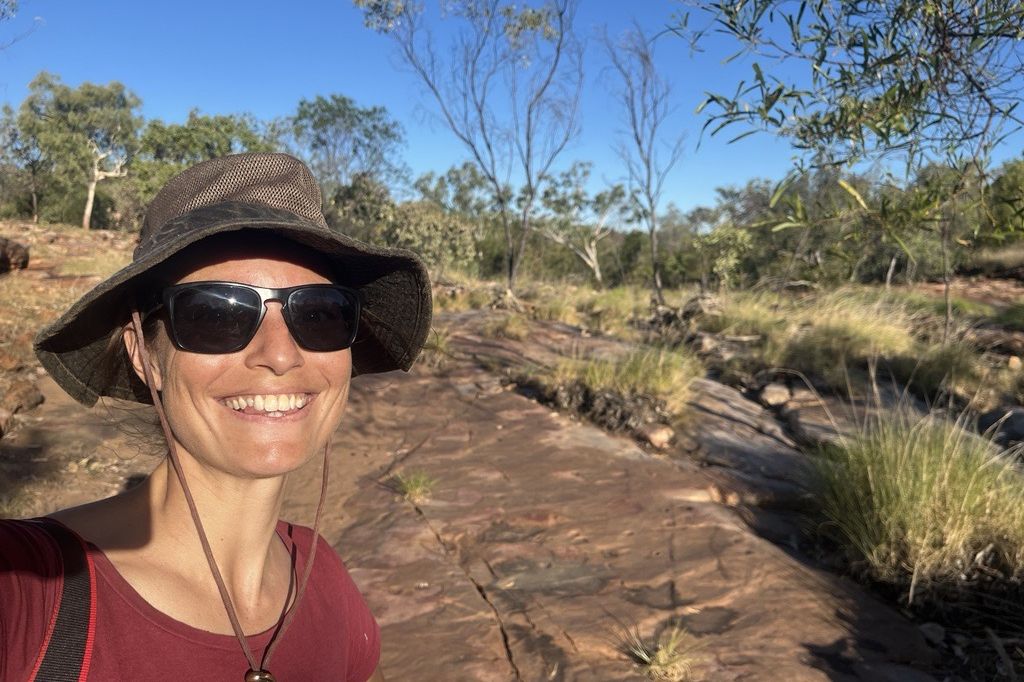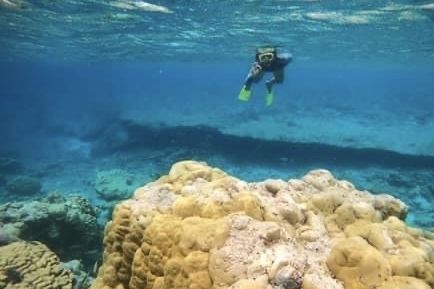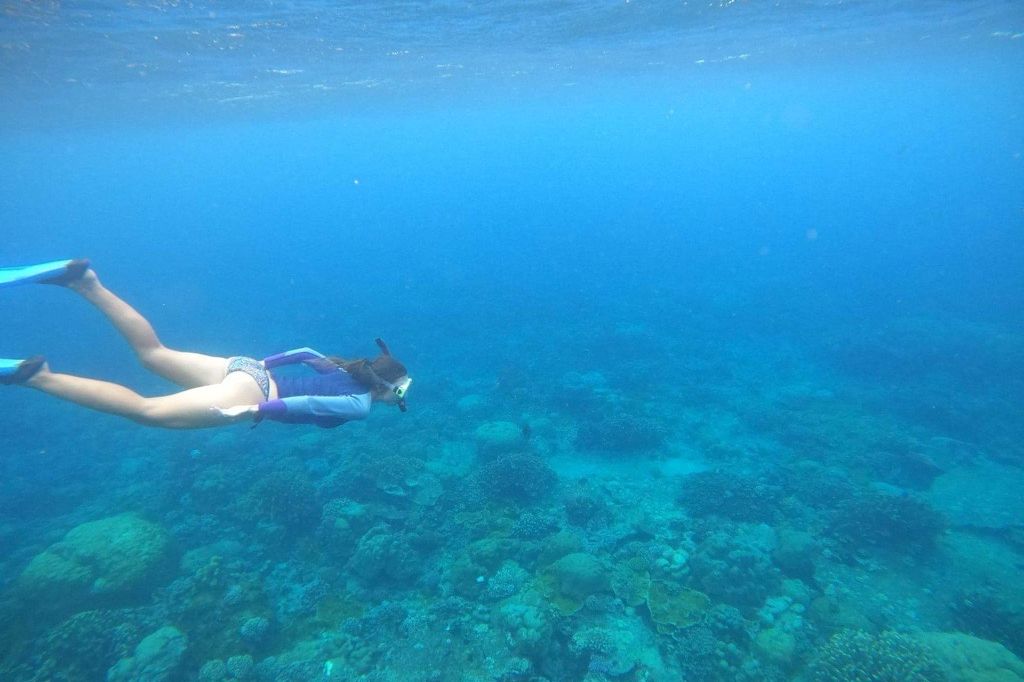As a child, Kristina Koenig dreamed of becoming a marine biologist - a distant prospect growing up in Germany. Although she eventually embarked on a career in business and economics, with roles in strategy consulting and financial modelling, her enduring love for the environment inspired her to volunteer for ecological projects.
That passion led Kristina to enjoy some time off travelling Australia's deserts, photographing reptiles and then working in the Kimberley - Australia's remote Northwest. This lifechanging experience inspired her to permanently escape the corporate world of Sydney and she started working with the Kimberley Land Council supporting Traditional Owners initially with their Ranger Programs and conservation work, and then their carbon projects.
Kristina says that her move to the Kimberley, and the fortuitous set of circumstances that followed, sparked her career pathway. "My commercial background became really useful as the carbon market started taking off," she says.
Nature markets, like carbon and biodiversity markets, are rapidly evolving. At their core, they aim to help quantify and verify conservation and/or restoration outcomes that support the ecosystem, allowing those benefits to be 'unitised' to the degree they can be sold or traded and thereby attract financing for the delivery of the work on the ground.
"Traditional Owners were developing savanna fire management projects that qualify for carbon credits by avoiding emissions. Working for the Kimberley Land Council, I was able to work alongside those Prescribed Bodies Corporate (PBC) and Aboriginal Corporations for a number of years, supporting their project registrations, offset reporting, compliance and sales, and the related policy work to help ensure that the methods and broader regulatory environment would enable Traditional Owners to leverage the carbon market to support their aspirations looking after their Country," she says.

Kristina says that her move to the Kimberley, and the fortuitous set of circumstances that followed, sparked her career pathway.
In her current role, as the Nature Markets Lead at the Great Barrier Reef Foundation, Kristina has been working to develop a skeleton for a future coral biodiversity crediting methodology, comprising an accounting approach our partners at the Australian Institute of Marine Science are devising as part of the project, identifying and quantifying indicators that can help assess the coral reef condition as it drives biodiversity.
She explains: "In the same way we think about the rainforest's health as directly linked to the health of the species that live there, we've started with the science by exploring coral-fish relationships from the perspective of corals as habitat and sources of food."
We can then use these indicators to assess the effectiveness of restoration and conservation actions in mitigating climate change impacts and increasing ecosystem resilience. Such "biodiversity accounting" approaches can help guide decisions on the most critical conservation and restoration actions, and can underpin financial instruments that drive investment to scale up these interventions.
While dozens of biodiversity accounting methods have been developed in Australia for land ecosystems like forests and wetlands, none yet exist for coral reefs. The partnership between theL'Oréal Fund for Nature Regeneration and the Great Barrier Reef Foundation, in collaboration with the Australian Institute of Marine Science, is driving this first large-scale initiative to develop a biodiversity accounting method for coral reefs, based on decades of cutting-edge reef restoration science and technology.

"Biodiversity accounting" approaches can help guide decisions on the most critical conservation and restoration actions.
When discussing some of the key emerging challenges in the nature market industry, Kristina says: "This space is moving fast and so we need to be cognisant of the balance between moving quickly to help drive market integrity from the get-go and taking the time to get the science right. At the same time, it's about working with our partners on governance and good regulation and making sure that the framework conditions are in place.
"There is a potential opportunity to contribute a methodology for reef custodians and managers around Australia and the Pacific - and maybe beyond - to evaluate and quantify the impact of their work and generate revenue from that which they can re-invest. It's crucial to get the science right at the start, so that we can, together, build a market that has high integrity and is outcomes-driven and credible, but also equitably accessible."
When asked about her greatest professional achievement, Kristina says: "There's nothing that is just my achievement - everything I'm most proud of has been a team effort, with colleagues and importantly, with Traditional Owners who allowed me to work alongside them on their aspirations for Country. Negotiating partnerships that are at least equitable but often put the Aboriginal Corporations in the driver's seat has been the most rewarding. To think that some of these projects will continue to deliver tangible benefits for 25+ years to come is very humbling."
The one thing she'd like everyone to know about the Reef is that its impact and importance go beyond its physical location.
"I think for people in the immediate vicinity, the threats are obvious. But for many others - even those that know the Reef is under threat from climate change - the current trajectory of the Reef might seem like a huge tragedy, but it may not necessarily be front of mind. A risk to the Reef is a risk to so many livelihoods, the environment and ecosystems around the world, so we should all be invested in taking action on all the possible fronts to collectively make a difference."







